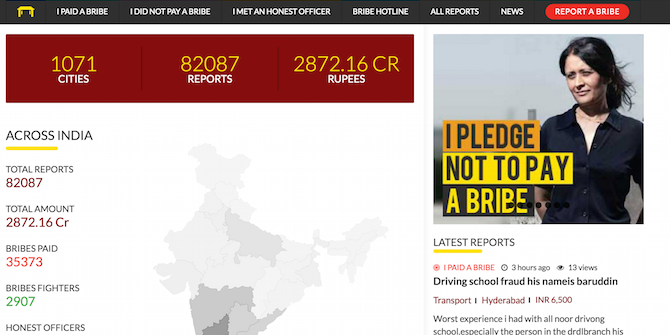
For safeguarding human security in rural Bangladesh, people-centred development is at the core of discourse: focusing on self-reliance, community living, social justice, and participatory decision-making. Unfortunately, it is missing in the context of rural Bangladesh, writes Mohammad Tarikul Islam.
Human Security, a non-traditional security approach, primarily refers to the survival of individuals, community and even the global world. Without a doubt, human security has been the emerging paradigm for understanding global vulnerabilities. Its proponents challenge the traditional notion of national security by arguing that the proper referent for security should be the individual rather than the state.
Rural community development in Bangladesh led to not only socioeconomic improvement, but had implications for social, economic and environmental systems. However, rural development in Bangladesh is found to be less progressive as most community based organizations are reported to be inactive. Furthermore, increasing community dependency to outsiders’ help and absence of community perceived development has contributed to the underdevelopment of rural Bangladesh, resulting in human insecurity in rural Bangladesh.
The population of rural Bangladesh faces critical issues of social, economic and environmental sustainability such as a significant decrease of water supply caused by significant loss of water resources, recurrent natural disasters and the impact of climate change. These issues lead to significant threats to agricultural and community livelihoods. Bangladesh is a disaster-prone country and disaster vulnerability possesses a threat to human security. Human security is at risk as disaster renders the community without food or shelter, impoverished, diseased, and displaced. It is apparent that the national disaster management institutional structure acknowledges the importance of the institutional presence up to local level for comprehensive disaster management.
The Union Parishad Disaster Management Committee, an ideal platform at the heart of community people, has underperformed due to competency issues of local elected representatives. In the context of rural Bangladesh, environmental degradation is a particular case of consumption or production externalities reflected by divergence between private and social costs (or benefits). The Union Parishad (the lowest tier of the local government in Bangladesh) over the years has been confronted with numerous problems which upshots poor management of environmental security in rural Bangladesh.

Guava seller on Kuriana canal, Pirojpur. Photo credit: Muktar Hossain, CC BY-SA 4.0
The government of Bangladesh is striving hard to ensure access of her rural population to basic health care and health services by the way of setting up primary health care centres. The role of NGOs particularly BRAC in promoting primary health services for mother and children is notable. One of its responsibilities involves providing health security to the rural population, which is a challenging task given that only approximately 35% of Bangladeshis live in cities and there is limited infrastructure and a lack of health professionals in rural areas.
Whilst the Food security situation in rural Bangladesh has somewhat improved over the years but further improvements on access and utilisation, need to be sustainable and scaled up, which requires renewed efforts from the government, civil society organizations and the development partners. However, issues of governance and accountability further thwart attempts at providing targeted safety nets and price stabilization. The Union Parishad is supposed to play a significant role in ensuring human security for the people living in rural Bangladesh, but corruption, poor governance and lack of accountability are the common scenario in social safety net programs like Vulnerable Group Development (VGD), Vulnerable Group Feeding (VGF), Old-age Allowance, Widow Allowance, and Disability Allowance.
Furthermore, The formal justice system in Bangladesh is under tremendous pressure with much workload and inadequate number of officials and staff to dispose the cases. As a result, the case backlogs add up to the existing pending cases and at present it stands at about half a million cases. Village courts under the Union Parishad, have been the alternative and reachable podium for the justice seeker in rural Bangladesh. The Village Courts Act of 2006, which replaced and updated the Village Courts Act of 1976, provides for the establishment of a village court in every Union Parishad. A related criticism of the village court is that it has little appreciation of rule of law and serves as an enforcer of often retrogressive norms.
Community policing could provide an aiding vehicle to human security by building peace and ensuring safety and stability in the rural society of Bangladesh. It is a collaborative effort between the police and the community that identifies problems of crime and disorder and involves all elements of the community in the search for solutions to these problems. Most communities, particularly, those located in rural areas, still have reservations about working with police, something which could be remedied by stronger intervention at Union Parishad level.
In conclusion, the local community needs to both lead and master social change. While NGOs are still likely to be most concerned with the essentials of improving human development, becoming involved in human security initiatives helps to strengthen them as organizations and to reinforce and extend the contribution that they are able to make to the people with whom they already work. What we perceive at last, is the need for a paradigm shift from the government from imposing development into facilitating rural development: from teaching the local people, to learning together with them. Mainstreaming human security into the existing mainstream of rural development approaches therefore, is a must.
This article gives the views of the author, and not the position of the South Asia @ LSE blog, nor of the London School of Economics. Please read our comments policy before posting.
About the Author
 Mohammad Tarikul Islam is Assistant Professor at the Department of Government and Politics, Jahangirnagar University, Bangladesh. He previously worked at the United Nations for seven years on projects relating to local governance, democracy, disaster management, the environment and climate change. Mr. Islam is currently engaged with the Centre for Climate Change Communication, George Mason University, USA as an Affiliate Researcher. He can be reached at t.islam@juniv.edu
Mohammad Tarikul Islam is Assistant Professor at the Department of Government and Politics, Jahangirnagar University, Bangladesh. He previously worked at the United Nations for seven years on projects relating to local governance, democracy, disaster management, the environment and climate change. Mr. Islam is currently engaged with the Centre for Climate Change Communication, George Mason University, USA as an Affiliate Researcher. He can be reached at t.islam@juniv.edu







